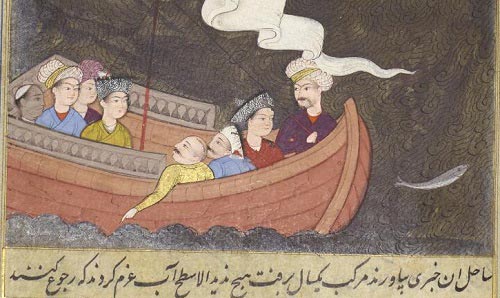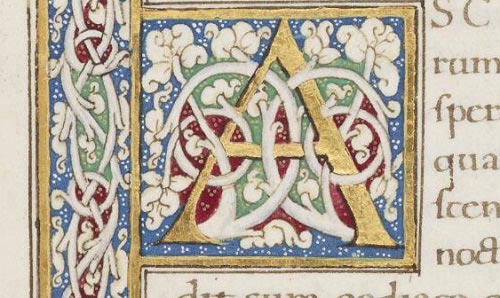
Spanish, Portuguese and Latin American Studies Collections
The Library’s Special Collections provide a rich resource for the study of the histories, literatures, cultures and economies of Spain, Portugal and Latin America.

Our collections cover areas as diverse as 10th-century Latin manuscripts from Visigothic Spain; 15th-century printed books from the Iberian peninsula; contemporary accounts of the Hispano-Portuguese voyages of discovery and the Conquistadores; archives revealing trading and commercial links between Britain and Latin America in the 19th and early 20th centuries; and literary archives relating to major Iberian and Latin American writers of the 20th century.
Together, these collections provide extensive source material for the cultural, literary, social and political histories of Spain, Portugal and Latin America; the histories of exploration, conquest, and imperialism in the Americas; and studies of the indigenous peoples and cultures of Latin America.
Medieval and early modern Spain and Portugal
The Library’s Special Collections include significant holdings relating to the history of medieval and early modern Spain and Portugal, from the Visigothic period, through the unification of Spain, to the Renaissance and beyond.
Our important medieval manuscripts include: three 10th-century Latin Manuscripts from Visigothic Spain; the famous Rylands Haggadah from 14th century Catalonia (Hebrew MS 6); and twenty-nine Spanish Manuscripts, from the 16th century onwards, including a collection of the historical writings of Esteban de Garibay y Zamalloa, royal historiographer to Philip II. Portugal is represented by a decorated 15th-century armorial containing the arms of royal and noble families (Latin MS 28). While none of our Arabic manuscripts can be localised to the Iberian Peninsula before 1492, several later texts concern the history of Al-Andalus.
The Library holds 20 Spanish Incunabula (books printed in the 15th century). The earliest is Laudivio Zacchia’s Epistolae Magni Turci from the Barcelona press of Johannes of Salzburg and Paulus Hurus, c.1475. There are also at least 40 incunable editions of works by Spanish writers printed outside Spain. The earliest is the Rome edition of Torquemada’s Meditationes, 1467. The Library also holds a unique copy of El Libro del Esopete Ystoriado (Aesop’s Fables), published in Toulouse in 1488 for the Spanish market.
There are significant collections of 16th- and 17th-century printed books, including theological, historical and literary texts. In the field of theology, the outstanding work is the famous six-volume Complutensian Polyglot Bible (1514–17), sponsored by Cardinal Francisco Jiménez de Cisneros (Spencer 3). There are also important works relating to the Counter-Reformation. The collection of Gordon Kinder (1927–97) is a major source for studies of 16th-century Spanish Protestantism and the Catholic Reformation.
There are over one thousand volumes of Spanish historical works, and a further 500 on Portuguese history. The history and geography of Catalonia is particularly well represented, with over 60 works from the 17th century. There is also good coverage of the Basque country, with a collection of 70 volumes on the Basque language. Literary texts include the Lisbon and Valencia pirated editions of Cervantes’s Don Quijote, both published in 1605, the same year as the first edition, and many fine subsequent editions, including the first complete edition in English, translated by Thomas Shelton (1620).
Modern Spain and Portugal
The papers of General Sir Henry Clinton (1771–1829) and his brother General Sir William Henry Clinton (1769–1846) constitute one of the most important archival sources to be found anywhere relating to the Peninsular War of 1807–14. Unfortunately, the archive remains uncatalogued, but there is a summary listing of the smaller collection of papers of Sir Robert Kennedy concerning the same campaign.
The Spanish Civil War is documented in the archive of the Guardian (formerly Manchester Guardian) newspaper, which is a key resource for most major events of the 20th century, as well as in the digitised Nancy Cunard Correspondence.
There is good coverage of Spanish and Portuguese literature of the 19th and 20th centuries, in both the original languages and in translation. For example, there are over 50 volumes of Azorín (Jose Martínez Ruiz) and editions of other members of the ‘1898 Generation’, such as Ganivet, Ortega y Gasset and Unamuno. There are also first editions of works by Antonio Machado, García Lorca, Alberti, and the novelists Pérez Galdós, Blasco Ibáñez, Pío Baroja and Alas, among others.
Manchester-based Carcanet Press has published the work of many Iberian and Latin American poets in Spanish and Portuguese, and in English translation. The Carcanet Press Archive contains important correspondence with writers, editors and translators. In addition, the papers of Giovanni Pontiero, former reader in Latin American Literature at The University of Manchester, contain his research papers relating to the Nobel Prize-winning Portuguese novelist, José Saramago (1922–2010).
Latin America
Our Special Collections contain an excellent range of manuscripts, archives and rare books relating to many aspects of Latin American studies. There are even three indigenous Mexican manuscripts, including an incomplete Techialoyan codex of Tepotzotlán (Mexican MS 1), written on amatl or amate, a paper made of the bark of fig trees.
Four of the Spanish manuscripts relate to Latin America. Spanish MS 4 is a ‘Vocabulario pana-español’, a short vocabulary of the Pana, or Seteba, language of Peru, dated 1795. A more substantial ‘Vocabulario español-indiano’ is an 18th-century document on the Guarani language of Paraguay (Spanish MS 7).
The Library holds an excellent set of printed accounts of the voyages of discovery and the conquest of Latin America, including Fernández de Oviedo’s Coronica de las Indias (1547), Francis Drake’s Expeditio in Indias (1588), and the collection of voyages begun by Theodor de Bry and continued by his sons, Johann Theodor and Johann Israel de Bry (17 parts in 6 volumes, 1590-1634). Later works of scientific importance include Charles Darwin’s and Robert FitzRoy’s accounts of their South American voyages, and Alexander von Humboldt’s Researches, concerning the institutions and monuments of the ancient inhabitants of America (1814).
Several archives document the commercial and cultural links between Britain and South America in the 19th century. For instance, the Hodgson, Robinson and Company Archive and the Owen Owens and Son Archive both record trade between Britain and Argentina during the first half of the 19th century. The Heald-Hall Family Papers relate to Walter Heald (1841–1925), a merchant who went to South America in 1866, to his wife Emily Isabel, née Krabbé (1852-1926), whom he met there, and to the firm of Krabbé, Higgins & Co. of Buenos Aires, general merchants. The Foreign and Commonwealth Office Pamphlet Collection contains numerous pamphlets relating to international boundary disputes in South America, where the British Government was the formal arbitrator.
Latin American literature is represented by the Cuban Women Writers Collection, while Latin American poets featured prominently in the lists of both Anvil Press and Carcanet Press.
List of collections
Physical collections
- Anvil Press Printed Collection
- Arabic Manuscripts
- Carcanet Press Archive
- Carcanet Press Book Collection
- Clinton Papers
- Cuban Women Writers Collection
- Foreign and Commonwealth Office Pamphlet Collection
- Guardian (formerly Manchester Guardian) Archive
- Heald-Hall Family Papers
- Hebrew Manuscripts
- Hodgson, Robinson and Company Archive
- Incunabula Collection
- Sir Robert Hugh Kennedy Papers
- Gordon Kinder Collection
- Latin Manuscripts
- Owen Owens and Son Archive
- Giovanni Pontiero Papers
- Spanish Manuscripts
- Voyages and Travels Printed Works
Digital collections
-
Nancy Cunard Correspondence in Manchester Digital Collections
Further information

Exploring subject areas
An overview of our Special Collections, including information about the background and history of our holdings.

Special Collections A-Z
Explore the Special Collections through the collection names and descriptions using our searchable A-Z tool.
